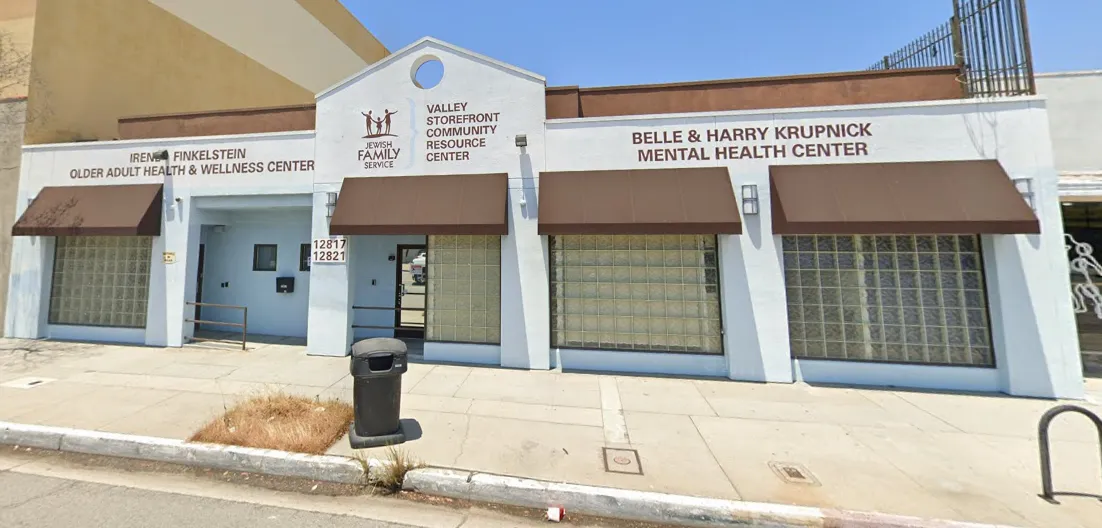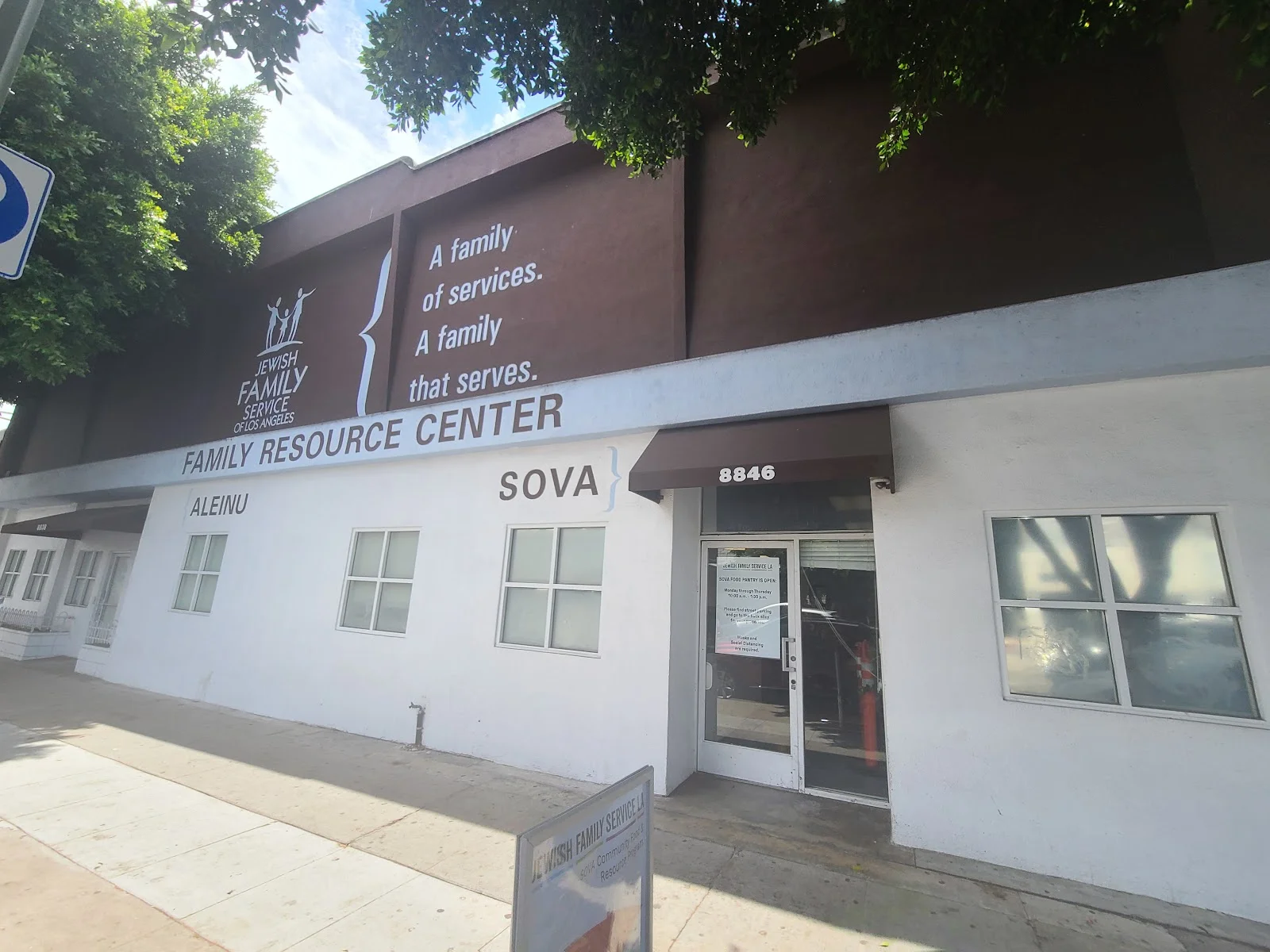Jewish Family Service - Valley Storefront Senior Center Information
Treatment
Who We Treat
- Young Adults (18–25)
- Adults
- Seniors/Older Adults
- Midlife Adults
- Older Adults
- Male and Female
Treatment Focus
- Anxiety
- Depression
- Trauma
- Older Adults
Approaches
- Individual Treatment
- Evidence-Based
- Family Involvement
- Family Therapy
- Group Therapy
- Cognitive Behavioral Therapy (CBT)
- 1-on-1 Counseling
- Art Therapy
- Online Therapy
- Life Skills Training
Conditions We Treat
- Depression
- Anxiety
- Grief & Loss
- Trauma
- Grief and Loss
- Stress
Languages
- Farsi
- English
- Russian
- Spanish
- Hebrew
Aftercare
- Outpatient Treatment
Level of Care
- Outpatient
- Virtual & In-Home Care
Experience
On-Site Amenities
- Fitness Center
Personal Amenities
- Air-Conditioned Rooms
Special Considerations
- Wheelchair Accessible
- Clients Who Have Experienced Domestic Violence
Smoking and Vaping Policy
- Smoking Not Allowed
- Vaping Not Allowed
Accreditations
-
Commission on Accreditation of Rehabilitation Facilities (CARF)
CARF accreditation is a prestigious recognition granted to rehabilitation and human service organizations. It signifies that an organization meets high-quality standards, having undergone a rigorous evaluation process. CARF accreditation boosts an organization's credibility and ensures top-notch care for individuals with disabilities, injuries, or healthcare needs.

Additional Locations
Jewish Family Service - Valley Storefront Senior Center Accepts The Following Insurance Plans
Find the best treatment options. Call our free and confidential helpline today!





